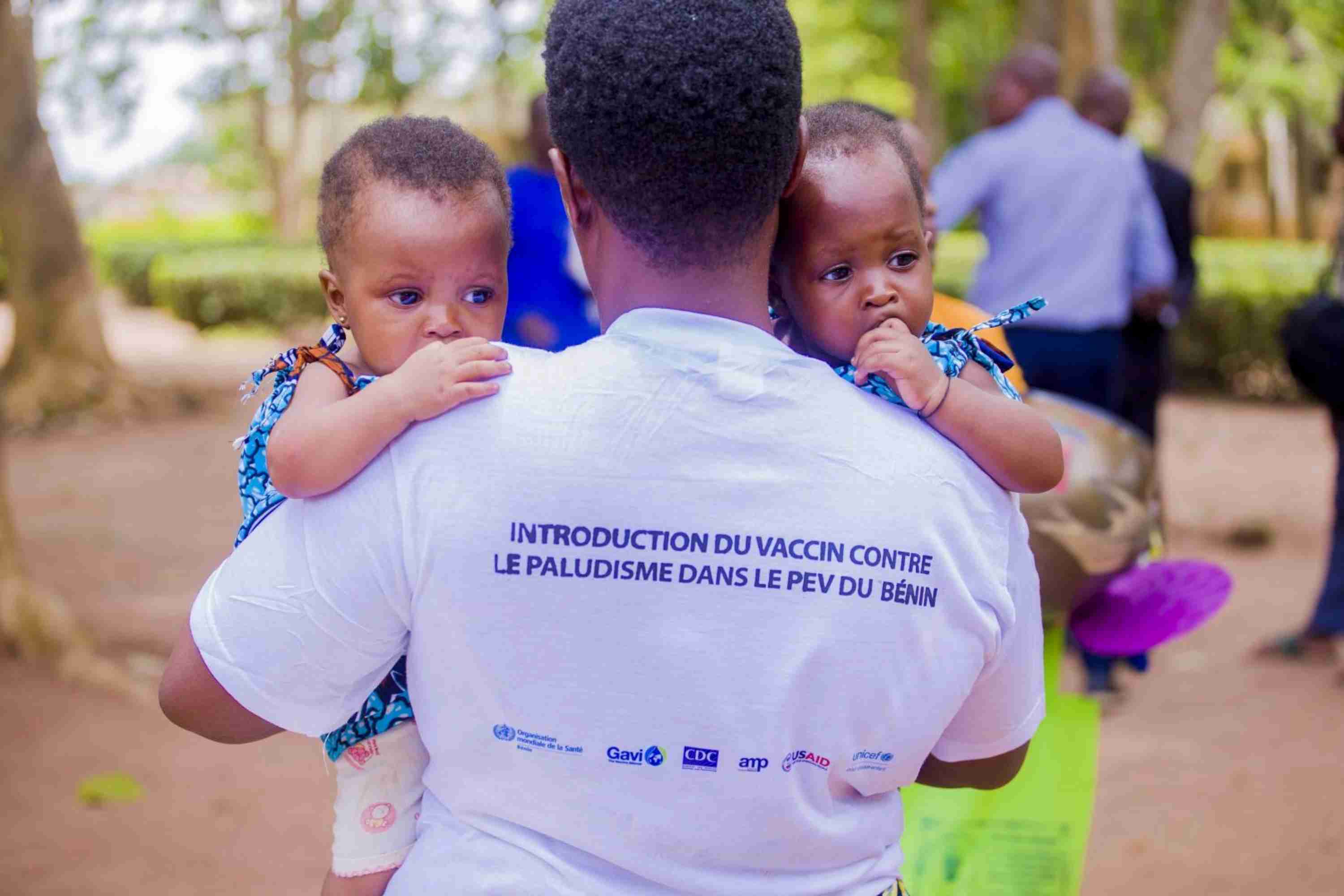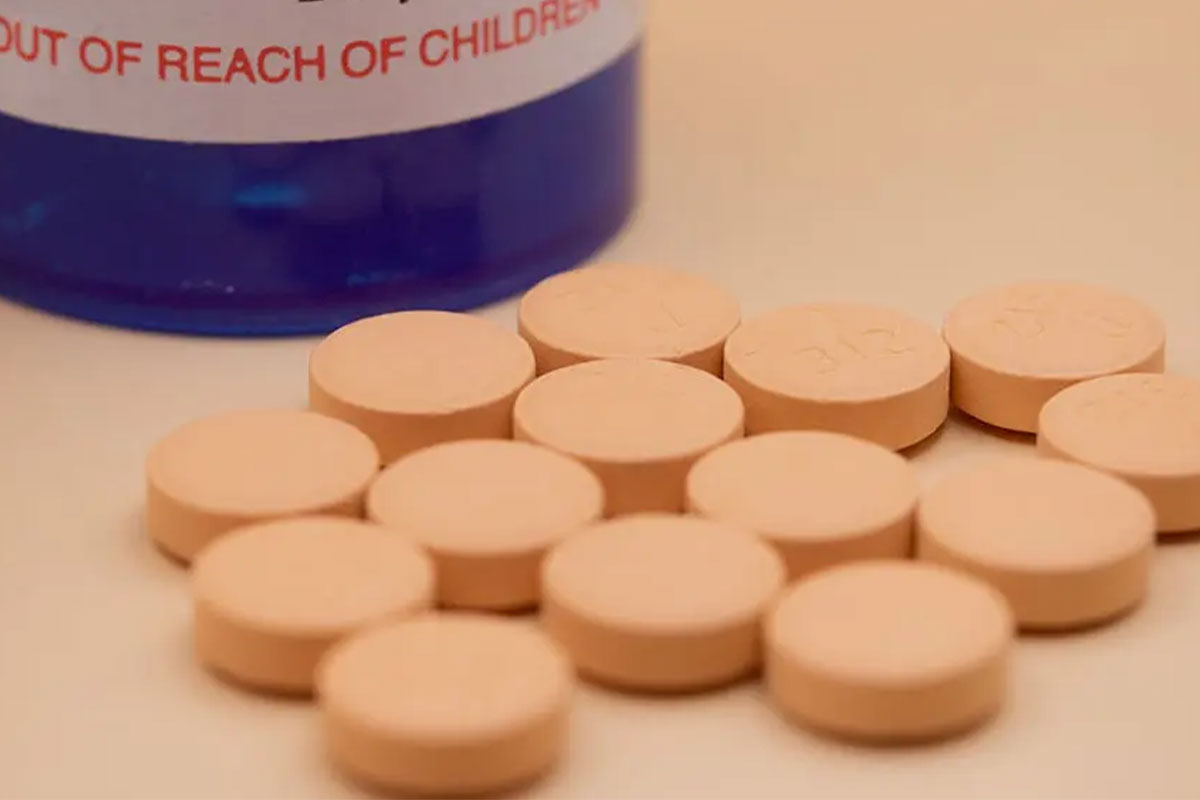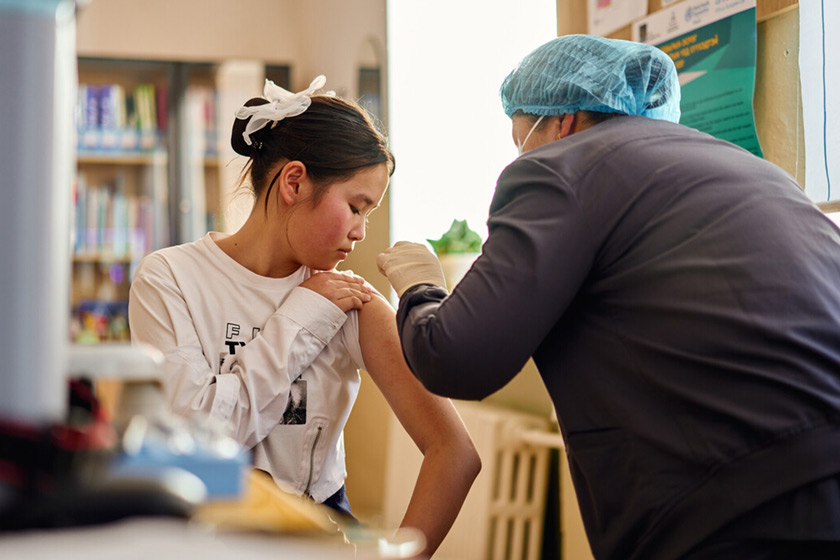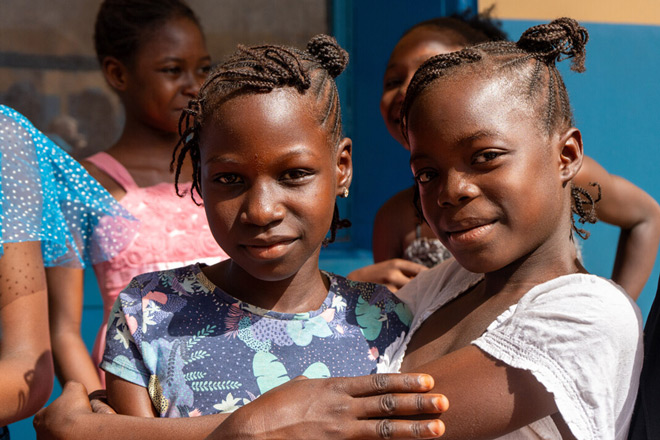In a Benin village, the Fathers’ Club is redefining family roles for the sake of child health
In Koukiri, a village in northern Benin, a group of activist dads can confirm that while changing mindsets isn’t easy, it is possible – and their results vindicate the effort.
- 1 May 2025
- 5 min read
- by Edna Fleure
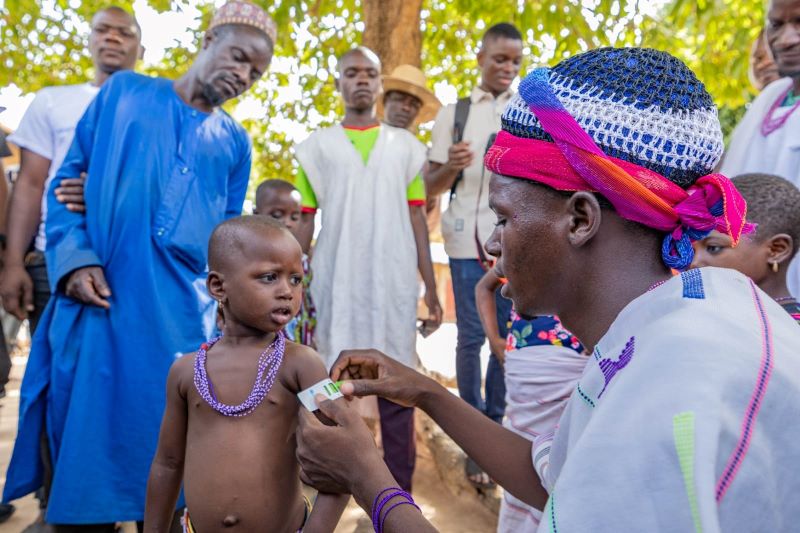
Joseph Adamou, a member of the Fathers’ Club of Koukiri, a village in northern Benin, is busy in the kitchen preparing lunch, while his wife and children look on with tender, admiring smiles. What might seem like an ordinary scene elsewhere still turns heads here – and sometimes even draws mockery – from some men in the village who see his behaviour as “unmanly”.
Today’s meal in the Adamou household is Tchétoum sauce, a Fulani dish known for its rich nutritional and healing properties. Earlier that day, Adamou had taken his two-month-old son to the local health centre for his vaccinations – another task stereotypically assigned to mothers.
A family-level revolution
At the Fathers’ Club, Adamou leads on issues related to children’s nutrition. But for him, it’s about more than food: he explains that his priority is the health and well-being of his children.
This growing shift in attitudes has been encouraged by a UNICEF initiative, run locally by the NGO Sia N’Son, with support from donors in the UK, the Netherlands and Japan. Not everyone in the village is convinced that men should be getting involved in work traditionally left to women. But Adamou is undeterred.
“I know men like me in the Fathers’ Club get called all sorts of names. But that won't stop us. Our mission is to raise awareness, to show other dads why this matters. When they realise how important it is to make sure their child eats well, gets vaccinated and much more, they’ll want to join too,” he says, smiling.
Towards a better balance at home
In Koukiri, the Fathers’ Club has become something of a parenting school. Every member has a voice, and all contribute proudly and wholeheartedly to improving the well-being of the village’s children. Fathers are organised into groups focusing on key aspects of child health: such as nutrition – including exclusive breastfeeding from birth to six months and immediate breastfeeding after delivery – following the vaccination schedule, hygiene and sanitation.
“We are working hand-in-hand with the community in a process of co-creation. Our role is to help them improve their traditional recipes so that they include all four essential food groups needed for a child’s development,” explains Gaëlle Logozo, a nutrition officer at UNICEF’s Parakou office.

For now, the Fathers’ Club of Koukiri comprises six men. But behind these six committed volunteers stand many others who share the same belief: for a child to grow up healthy and thrive, both parents must be fully involved – starting from pregnancy.
Véronique Tinéponanti, project officer at the NGO Sia N’Son, explains that in this community, people fully recognise the value of the club in bringing balance to family life.
“You won’t find an organisation like this anywhere else. We decided to involve fathers when we realised that mothers weren’t always able to properly care for their children, often because they lacked their husbands’ permission or support,” she says.
Have you read?
“We understood that we needed to raise [fathers’] awareness by showing them how important nutrition, care and early childhood follow-up are for their children’s health – both now and in the future. And it worked, to our great satisfaction,” she adds.
Spectacular results for child nutrition
Though the Koukiri Fathers’ Club is small, the overall project of encouraging fathers to get involved in every aspect of child development – nutrition, vaccination, medical follow-up – has reached more than 282 communities, directly impacting at least 3,000 households.
Within the club, Sanni Demon plays a key role: that of a father-advocate. His task is to convince other men to take part in prenatal consultations. Through this mission, which he embraces with pride, he is learning every day – but he has regrets to look back on.
“We were always told that this was women's work. But with the support of UNICEF and Sia N’Son, I’ve realised that men have nothing to lose by standing alongside their wives in these important responsibilities. It takes two people, working together, to move forward in the same direction. A healthy child, with an up-to-date vaccination record, means one less worry for us as parents,” he says.
What makes the Fathers’ Club particularly remarkable is that in Koukiri – where the project began – the results are already visible. Child nutrition indicators are all showing strong progress. “We were at 32% acute malnutrition in this area. I can assure you that today, thanks to our interventions, all the children are in good nutritional health,” says one of the project leaders.
Data recorded by UNICEF confirms significant progress nationwide. In the area covered by our report, the proportion of children receiving a diet meeting World Health Organization-defined acceptable minimum standards for nutrition rose from 1.1% in 2021 to 16.3% in 2023 – a remarkable improvement.
UNICEF plans to continue its efforts through the First Food initiative, in partnership with the Beninese government, the private sector and other stakeholders, to make the fight against malnutrition a national priority. As for Ibrahim Sanni, known as “Papa Early Breastfeeding”, he hopes the Fathers’ Club experience will spread to every community in Benin. He remains clear-eyed about the challenges ahead:
“Changing mindsets won't be easy – but it is possible,” he says.
This story is translated from French. Read the original story on French VaccinesWork here.

